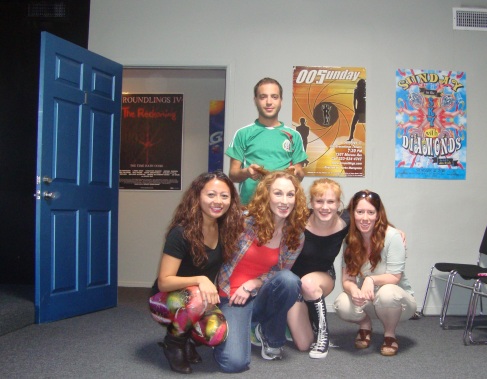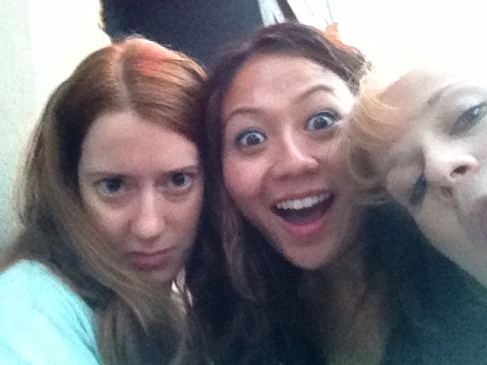Pork Dinuguan (Pig Blood Stew)
INGREDIENTS:
- 500 grams pork belly, cut into cubes
- 1 cup vinegar
- 3 pieces of long green pepper
- 1 medium sized onion, chopped finely
- 4 cloves garlic, minced
- 1 tablespoon cooking oil
- 1 cup water
- 2 cups pork blood
- 1 teaspoon salt
- 1/4 teaspoon msg
- 1/4 teaspoon black ground pepper
- 3 pieces of bay leaves
DIRECTIONS:
- Saute the garlic and onion in a cooking pot.
- Add the pork belly, salt, msg, black ground pepper and stir fry for about 10 minutes under medium heat.
- Followed by a cup of water.
- Simmer for 10 minutes or until the water is almost gone to tenderize the meat.
- Add the pork blood, vinegar, chili finger and mix well. Let this simmer for 10-15 minutes or until sauce is dry.
- Serve hot.
Recipe from PinoyChow.com.
I remember when I first saw dinuguan being prepared in the kitchen. I was a preteen or so, and I saw my grandma’s assistant stirring a chunky black stew in a pot on the stove. Out of curiosity, I asked everyone in the kitchen what the mystery food was. I knew the pre-mixed stew came from these plastic tubs my family bought from the local Asian grocery store, but I didn’t know what the dish could be. Everyone jokingly said the typical little white lie by claiming the chunky black concoction was “chocolate stew.” Sensing their humor and the meaty smell of the food, I knew it was made of something else. Eventually I was told it was indeed pig blood stew, and I remember feeling disturbed and somewhat disgusted.
Growing up as a young second-generation Filipina-American, I had a tendency to identify more with American culture than my Filipino heritage. I felt I managed to maintain some of my Filipino cultural identity with my love for chicken adobo and lumpia, but I remember rejecting a lot of Filipino food offered to me, such as pinkabet (mixed vegetables in shrimp sauce) and buod (fried dried fish). I’ve never been offered the infamous balut (an almost developed duck egg), but I know for a fact I would not have willingly tried it nor will I ever just because of personal preference. Dinuguan is an example of another Filipino dish I can do without. Although I know all the meat I eat is the dead flesh of deceased animals, there’s something about eating other animals’ blood that conjures up gruesome images of vampires, the chupacabra, blood-borne diseases, and menstruation. Despite my dislike of dinuguan, I have tried it once just to be open-minded and out of curiosity, and that was also my last time ever. It tasted really “gamy” and soft. (Unless there’s a worldwide famine that falls upon us all and the only food left is dinuguan, I will eat it once again to survive.)
As a self-conscious preteen, I also cared a little too much about what other people outside my family would think about us if they found out they eat pig’s blood for dinner. To someone who is more Westernized and unfamiliar with Filipino culture and cuisine, I can imagine it would be perceived as odd or even sinister. Then again, one could argue that it is also strange that Westerners consume bodily fluids from cows and goats known as milk. As an adult, I have learned to care a little less about how others may perceive my Filipino heritage, but in retrospect, I can see how a young Filipina-American girl, who grew up in a community with not many other Asian-Americans and seeing mostly Eurocentric images on mainstream American television and film, would want to hide the dinuguan details about her family.
I feel maintaining a respectable reputation and hiding parts of my Filipino heritage, such as dinuguan, were also conditioned by my family in addition to my own insecurity. Even my Filipino grandmother advised me not use a recipe of dinuguan for this food blog assignment because she felt my American classmates would judge me negatively for it, but I see this as a wonderful opportunity to give my readers a glimpse into a unique culture and life perspective. I’ll pass on the dinuguan as far as my next meal, but I will definitely have it as the topic of my food blog post.
Until Next Time,
Angelie




